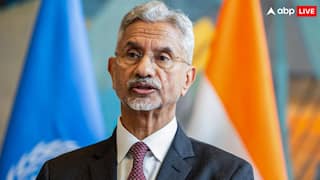India Gained Positions In World Order In Less Than A Decade, Different From 2013: Morgan Stanley Report
The report titled 'India Equity Strategy, and Economics: How India Has Transformed in Less than a Decade' highlighted the 10 big changes, mostly because of India's policy choices, their implications

India has gained positions in the world order with significant positive consequences for the macro and market outlook in a short span of 10 years, said the latest report by Morgan Stanley Research. According to the news agency ANI, the report titled 'India Equity Strategy, and Economics: How India Has Transformed in Less than a Decade' highlighted the 10 big changes, mostly because of India's policy choices, and their implications for its economy and market.
"This India is different from what it was in 2013. In a short span of 10 years, India has gained positions in the world order with significant positive consequences for the macro and market outlook. We present a snapshot of these changes and their implications," the report said as per the news agency
"We run into significant skepticism about India, particularly with overseas investors, who say that India has not delivered its potential (despite its being the second-fastest-growing economy and among the top-performing stock markets over the past 25 years) and that equity valuations are too rich. However, such a view ignores the significant changes that have taken place in India, especially since 2014," it added.
According to the report, Morgan Stanley's Research has identified 10 significant changes that have shaped India's trajectory. These include supply-side policy reforms, the formalization of the economy, the implementation of the Real Estate (Regulation and Development) Act, the digitization of social transfers, the enactment of the Insolvency and Bankruptcy Code, the adoption of flexible inflation targeting, a heightened focus on foreign direct investment (FDI), India's equivalent of a 401(k) moment, government support for corporate profits, and a multiyear high in sentiment towards multinational corporations (MNCs).
Unfolding a golden chapter in its economic story, India has made significant strides in less than a decade, says @MorganStanley’s latest report.
— MyGovIndia (@mygovindia) May 31, 2023
From competitive tax rates to a massive rise in social transfers, India's economy & market outlook have evolved dramatically.
Let's… pic.twitter.com/HPNzvIbKX1
The US-based firm acknowledged and supported the government's series of ambitious economic initiatives. They noted that India's base corporate tax rate has remained below 25 per cent, and for new entities starting operations prior to March 24, it has been set at 15 per cent. The study emphasized the progress in infrastructure development, specifically highlighting advancements in national highways, the broadband subscriber base, the expansion of renewable energy, and the electrification of railway routes.
In the formalisation of the economy, Morgan Stanley had taken GST collections, which were showing upward trends over the years, and digital transactions which grew 76 per cent of the GDP, the report noted.
In a report on May 18, Morgan Stanley projected that India is positioned to achieve a growth rate of 6.2 per cent in the ongoing financial year 2023-24. The improving macro stability suggests that monetary policy measures will not need to be restrictive, according to the news agency.







































